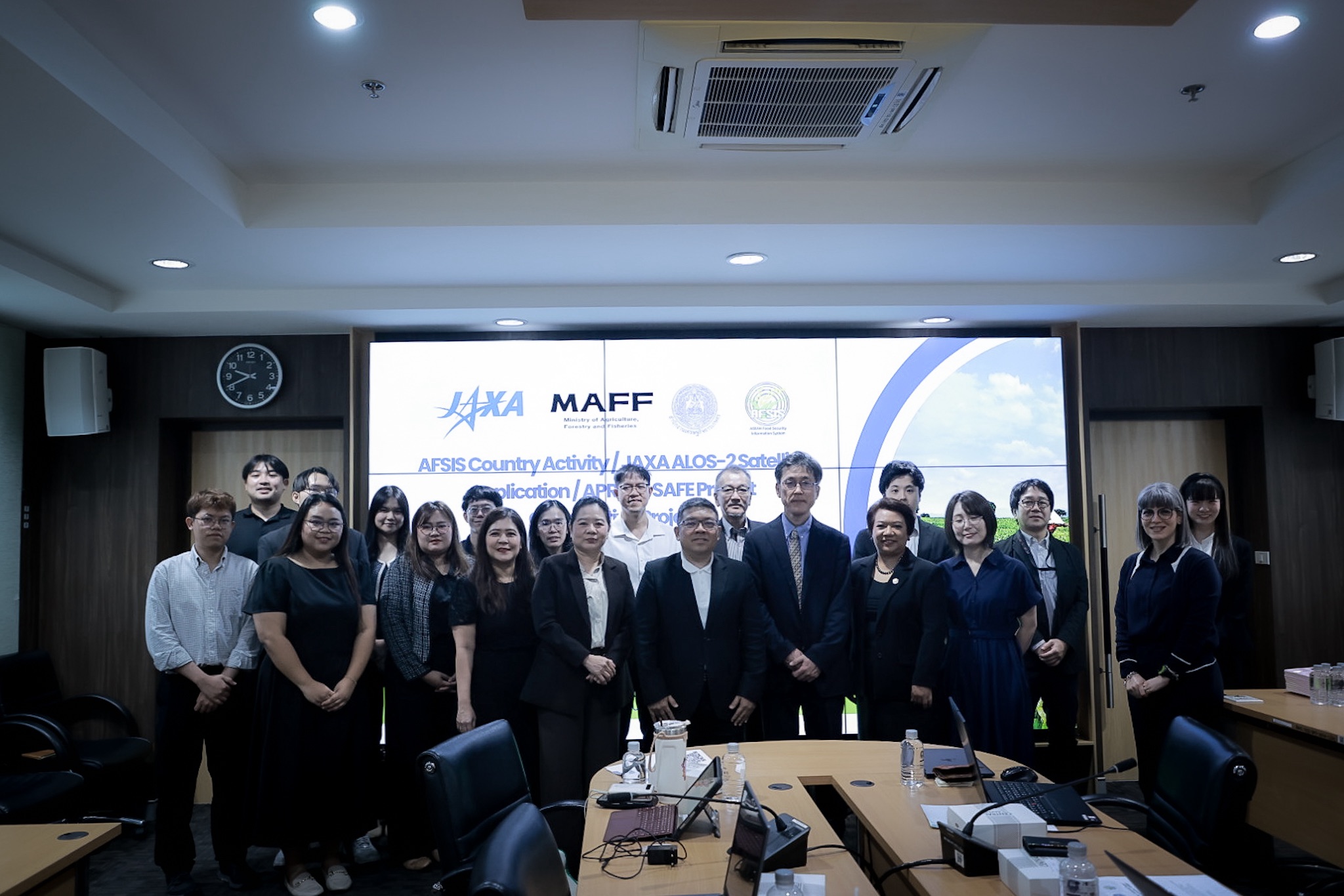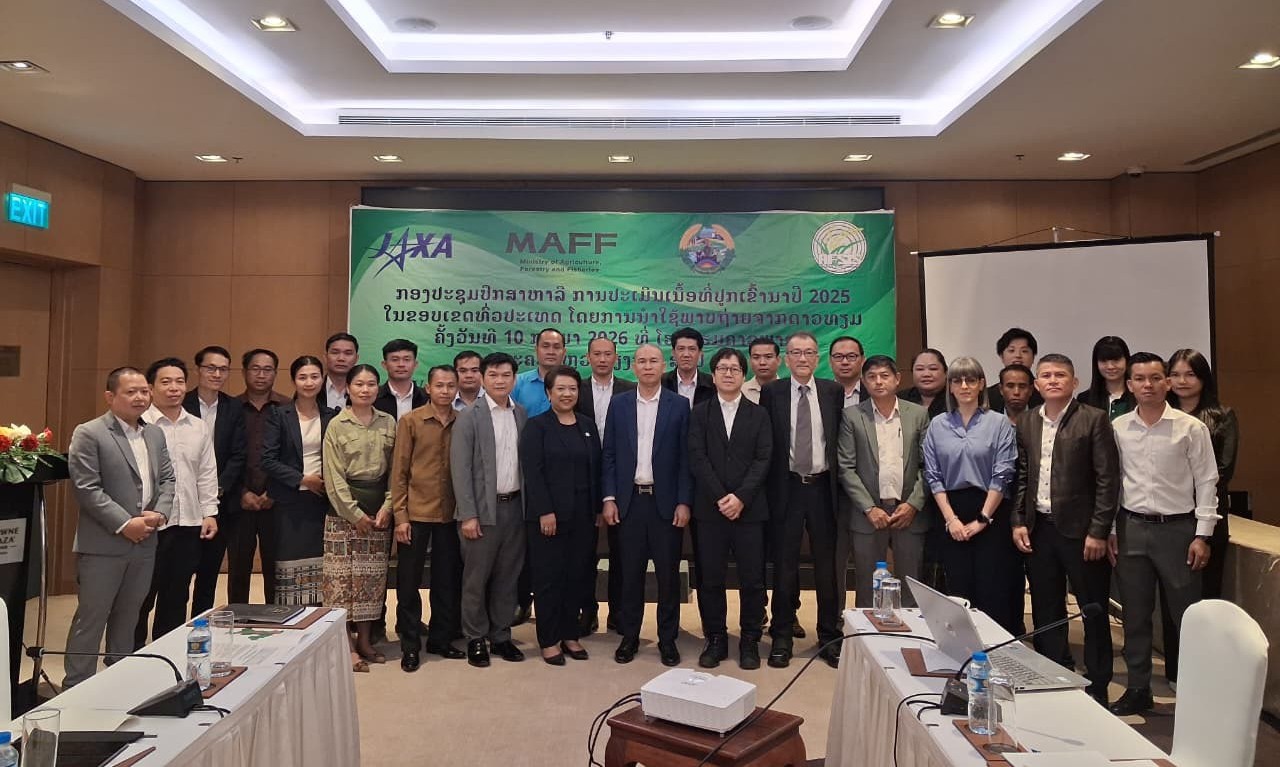
During 14-17 February 2023, AFSIS Secretariat attended the meeting and site visit on the livestock and fishery production survey with the Office of Agricultural Economics (OAE) Region 5 in Nakhon Ratchasima province, Thailand.
The objective of the activities are for a Japanese Expert and officials of the AFSIS Secretariat to study, discuss, and gain experience in livestock and fishery production data survey and farm management, which will be used for analysis and decision of the addition of commodity to the AFSIS database , ASEAN Agricultural Commodities Outlook (ACO) report and ASEAN Early Warning Information (EWI) report, which is one of the core activities under the technical support project from MAFF, Japan, entitled the Project of Strengthening ASEAN Food Security Information System (AFSIS) Function for Emergency or SAFER project for 2022-2025.
During the meeting and site visit, AFSIS Secretariat was informed of the responsibility of the Agricultural Information Division, Data Collection, Process of Preparing Agricultural Information Data, Livestock and Fishery Production Data, and Suggestion. In addition, AFSIS Secretariat with the support of the OAE Region 5 also conducted a site visit on the information preparation of agricultural products such as Tilapia, Red tilapia, Laying hen, Broiler, Dairy cow, and Cattle in Nakhon Ratchasima province.
The work successfully ended with great collaboration from the officials of OAE Region 5 and farmers. The knowledge imparted from this meeting and site visit will be used as supportive information for the additional commodity in AFSIS database along with the discussion with AFSIS member countries in the Kick-off Meeting under the SAFER project in this April 2023.

























On 12-13 February 2026, the AFSIS Secretariat, in collaboration with the Japan Aerospace Exploration Agency (JAXA), the Remote Sensing Technology Center of Japan (RESTEC), Ministry of Agriculture, Forestry and Fisheries (MAFF) Japan and the Office of Agricultural Economics (OAE), Ministry of Agriculture Cooperatives (MOAC), conducted a workshop conducted a workshop The Promoting Rice Planted Area and Production Estimation Using INAHOR and Space-based Technologies in Thailand at the Meeting Room 2, Innovation Building, 3rd FL, Office of Agricultural Economics (OAE)

The In-Country Workshop on Promoting Rice Planted Area and Production Estimation Using Space-based Technologies in Lao PDR was jointly organized by AFSIS Secretariat, JAXA, MAFF Japan, and MAE Lao PDR under the AFSIS-GIS and SAFE projects. The event was held in Vientiane with hands-on training on 9 February 2026 and a workshop on 10 February 2026.
.jpg)
On 13–15 January 2026, the Office of Agricultural Economics (OAE), Thailand, in collaboration with the Ministry of Agriculture, Forestry and Fisheries (MAFF), Japan, and the AFSIS Secretariat, conducted the 1st Meeting of Japan–Thailand Expert Dialogue on Agricultural Statistics. The meeting was held at the Office of Agricultural Economics and field survey activities in Chonburi Province.

On 3–4 December 2025, the ASEAN Food Security Information System (AFSIS) Secretariat participated in the ASEAN Plus Three Emergency Rice Reserve (APTERR) Table Top Exercise (TTX) held in Bandar Seri Begawan, Brunei Darussalam.